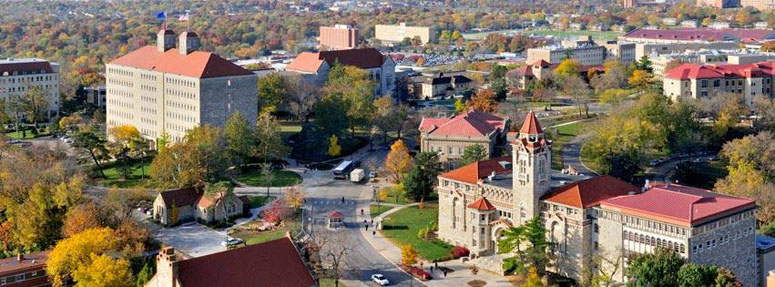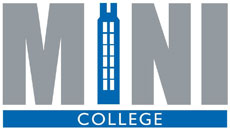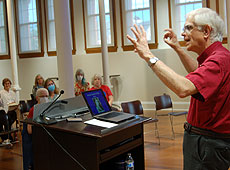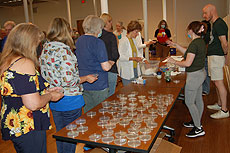Here was the schedule of classes and events at 2022’s Mini College. All presentations were in the Commons at Spooner Hall unless otherwise noted.
Monday, June 6
7:45 a.m. – Registration begins at Spooner.
8:00 a.m. – Doors open to the Commons. Coffee, tea and pastries will be served.
8:30 a.m. – Preliminary remarks.
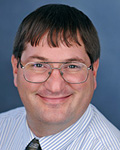 8:45-10:00 a.m. — Prof. Kyle Camarda, associate professor of chemical and petroleum engineering, “Women in the Chess World.” If you visit a chess tournament, whether it be a local event or a globally-broadcast grandmaster competition, one thing you’ll notice is the lack of women competitors. Globally, women make up an amazingly small percentage of players, particularly at the adult level. This seminar will explore the cultural and historical factors that have led to this imbalance, and discuss the various inclusion strategies that have been used. Stories of women who have broken through barriers to become top professional players also will be presented. 2022 has been declared the “Year of the Woman in Chess” by the international chess federation (FIDE), and this seminar will also discuss what such chess authorities are doing to create opportunities and motivate the next generation of female chess players.
8:45-10:00 a.m. — Prof. Kyle Camarda, associate professor of chemical and petroleum engineering, “Women in the Chess World.” If you visit a chess tournament, whether it be a local event or a globally-broadcast grandmaster competition, one thing you’ll notice is the lack of women competitors. Globally, women make up an amazingly small percentage of players, particularly at the adult level. This seminar will explore the cultural and historical factors that have led to this imbalance, and discuss the various inclusion strategies that have been used. Stories of women who have broken through barriers to become top professional players also will be presented. 2022 has been declared the “Year of the Woman in Chess” by the international chess federation (FIDE), and this seminar will also discuss what such chess authorities are doing to create opportunities and motivate the next generation of female chess players.
Camarda has been active in the chess community for nearly 40 years, as a player (Kansas State Champion in 2002), a tournament director, club president, faculty advisor and coach. His teams have won Kansas state scholastic championships at three levels, including winning the Kansas high school division in 2018 and 2020. He has a strong interest in supporting women chess players and in encouraging more women to play chess. He has taught many chess seminars to KU freshmen, and seminars about why there are so few women in the chess community. He lectured at Mini College last year on “Chess and the Cold War.”
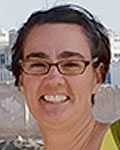
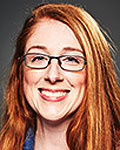 10:20-11:35 a.m. — Dr. Teresa MacDonald and Eleanor Gardner of the KU Biodiversity Institute and Natural History Museum, “An Overview of Microbes on the Move: Exploring Microbiomes Through Mobile Museum Experiences.” This program brings displays and hands-on activities to Kansas communities. This presentation will highlight components of the pop-up museum that introduce the major microbial groups, explore connections between microbes and more familiar organisms, and engage with living microorganisms. Participants will have the opportunity to create their own fungal plate. This activity, and the lecture, will take place in Spooner Hall. However, participants will end the session by walking across the street to the museum and pinning their fungal plate to the microbe wall exhibit. (This event is limited to 100 persons.) During the lunch break, Mini Collegians are invited to explore the museum’s galleries, which are normally closed to the public on Mondays.
10:20-11:35 a.m. — Dr. Teresa MacDonald and Eleanor Gardner of the KU Biodiversity Institute and Natural History Museum, “An Overview of Microbes on the Move: Exploring Microbiomes Through Mobile Museum Experiences.” This program brings displays and hands-on activities to Kansas communities. This presentation will highlight components of the pop-up museum that introduce the major microbial groups, explore connections between microbes and more familiar organisms, and engage with living microorganisms. Participants will have the opportunity to create their own fungal plate. This activity, and the lecture, will take place in Spooner Hall. However, participants will end the session by walking across the street to the museum and pinning their fungal plate to the microbe wall exhibit. (This event is limited to 100 persons.) During the lunch break, Mini Collegians are invited to explore the museum’s galleries, which are normally closed to the public on Mondays.
Dr. MacDonald is the associate director of informal science education at the museum, where she oversees the education, exhibits, and outreach departments. She holds a Ph.D. in science education, a master’s in vertebrate paleontology, and a bachelor’s in anthropology. She has more than 25 years of experience in science education in museums, science centers, universities, and schools from kindergarten to college level on three continents.
Eleanor Gardner is the museum’s outreach and engagement coordinator. She organizes many of the museum’s public events, including Discovery Days, Pop Up Science, scout programs, community events, and more. She holds an M.S. degree in geology (specialization in paleontology) and a bachelor’s degree in biology. Eleanor has worked in natural history museums for more than seven years in a variety of outreach positions, and previously taught geology at the university level for four years.
Noon-1:00 p.m. – Lunch on your own. The Natural History Museum will be open then for Mini College visitors.
 1:05-2:35 p.m. – Dr. A. Townsend Peterson, “The Serious Decline in the U.S. Bird Population.” Peterson is a University Distinguished Professor in the Department of Ecology and Evolutionary Biology, and curator in KU’s Biodiversity Institute. His research focuses on the ecology and evolution of species’ geographic distributions in time and space.
1:05-2:35 p.m. – Dr. A. Townsend Peterson, “The Serious Decline in the U.S. Bird Population.” Peterson is a University Distinguished Professor in the Department of Ecology and Evolutionary Biology, and curator in KU’s Biodiversity Institute. His research focuses on the ecology and evolution of species’ geographic distributions in time and space.
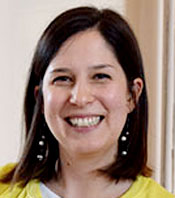 3:00-4:30 p.m. – Sarah Bell, Watkins Museum of History, “Fighting for Equality: Women’s Suffrage in Kansas.” Early Kansas history is known for its progressive stance on many issues, and voting rights for women was no exception. In 1867, Kansas was the first state to attempt full voting rights for women. So why did it take 50 long years to make it a reality? Despite numerous advancements, it was not an easy or quick undertaking. It also neglected to include the voices of all women. White middle-class women were credited with the success of the equality movement, while their allies of color most often faced discrimination and marginalization. This talk chronicles women’s suffrage in Kansas, highlighting events, leaders, and organizations key to the passage of the 1912 voting rights amendment to the state’s constitution.
3:00-4:30 p.m. – Sarah Bell, Watkins Museum of History, “Fighting for Equality: Women’s Suffrage in Kansas.” Early Kansas history is known for its progressive stance on many issues, and voting rights for women was no exception. In 1867, Kansas was the first state to attempt full voting rights for women. So why did it take 50 long years to make it a reality? Despite numerous advancements, it was not an easy or quick undertaking. It also neglected to include the voices of all women. White middle-class women were credited with the success of the equality movement, while their allies of color most often faced discrimination and marginalization. This talk chronicles women’s suffrage in Kansas, highlighting events, leaders, and organizations key to the passage of the 1912 voting rights amendment to the state’s constitution.
Sarah Bell is the development director at Lawrence’s Watkins Museum, 1047 Massachusetts. She holds a master’s degree in museum studies and a Ph.D. in history from KU. Her research interests include women’s political activism at the turn of the 20th century, particularly suffrage and temperance. Her dissertation analyzed the intersection of women’s political activities with the Chautauqua Movement at assemblies in Kansas and Colorado. In 2018, Sarah joined the Humanities Kansas Speakers Bureau and has enjoyed presenting to audiences across Kansas.
Tuesday, June 7
8:00 a.m. – Doors open to the Commons. Coffee, tea and pastries will be served.
8:30 a.m. – Preliminary remarks.
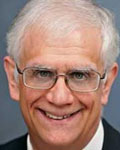 8:45-10:00 a.m. – Dr. Paul Laird, “The Life and Music of George Gershwin.” This will be an introductory look at Gershwin’s life and his work on Broadway, in concert music, and in Hollywood, showing his mastery of both popular song and his ability to fuse sounds from jazz, blues, and other styles into music that continues to sound thoroughly American. The class will also include a contextualization of Gershwin’s music in his own time and today.
8:45-10:00 a.m. – Dr. Paul Laird, “The Life and Music of George Gershwin.” This will be an introductory look at Gershwin’s life and his work on Broadway, in concert music, and in Hollywood, showing his mastery of both popular song and his ability to fuse sounds from jazz, blues, and other styles into music that continues to sound thoroughly American. The class will also include a contextualization of Gershwin’s music in his own time and today.
Paul Laird holds two degrees from Ohio State University and a Ph.D. in music from the University of North Carolina at Chapel Hill. He has taught at KU for 28 years and offered many classes through the Osher Institute for Lifelong Learning since its inception at KU. Laird is a leading scholar on the American musical theater and has published widely in the field, his latest book a study of the orchestration of West Side Story and Gypsy. Laird has been fascinated by George Gershwin’s music since high school and has taught multiple Osher courses on the composer and his output.
 10:20-11:35 a.m. – Prof. Sara Genevieve Baer, “An Overview of Some of the Activities at the Biological Survey & Center for Ecological Research.” Prof. Baer is the director of that facility, is the State Biologist for Kansas, and a professor of ecology and evolutionary biology at KU. The facility includes a 3,700-acre field station that Mini Collegians visited a few years back, a Monarch Watch, a mosquito monitoring program, a Native Medicinal Plant Research Program, ecosystems research and much more.
10:20-11:35 a.m. – Prof. Sara Genevieve Baer, “An Overview of Some of the Activities at the Biological Survey & Center for Ecological Research.” Prof. Baer is the director of that facility, is the State Biologist for Kansas, and a professor of ecology and evolutionary biology at KU. The facility includes a 3,700-acre field station that Mini Collegians visited a few years back, a Monarch Watch, a mosquito monitoring program, a Native Medicinal Plant Research Program, ecosystems research and much more.
Dr. Baer holds an undergraduate degree in biology from the University of North Texas and a master’s degree in entomology from the University of Georgia. She completed her Ph.D. in biology at Kansas State University, where she began and now leads the restoration focus of the Konza Prairie Long-Term Ecological Research program. She was a professor of plant biology at Southern Illinois University for 18 years.
Noon-1 p.m. — Pizza lunch with presentations from Linda Kehres, director of the Osher Lifelong Learning Institute, and Austin Ice, development officer for KU Endowment.
 1:05-2:35 p.m. – Jim Peters, “Presidential Assassins.” John Wilkes Booth and Lee Harvey Oswald are notorious assassins, but who were Charles Giteau and Leon Czolgosz, the assassins of Presidents Garfield and McKinley? We will examine each assassin and the motives of the men and woman who plotted to kill the presidents.
1:05-2:35 p.m. – Jim Peters, “Presidential Assassins.” John Wilkes Booth and Lee Harvey Oswald are notorious assassins, but who were Charles Giteau and Leon Czolgosz, the assassins of Presidents Garfield and McKinley? We will examine each assassin and the motives of the men and woman who plotted to kill the presidents.
Prof. Peters, J.D., is the director emeritus of the Osher Lifelong Institute at KU. He is a graduate of Southern Illinois University at Carbondale and the New England School of Law. He teaches courses on John Brown, the Underground Railroad, Arlington National Cemetery, Harry Truman, Teddy Roosevelt, Eleanor Roosevelt, and George Washington Carver, among others.
3:00-4:30 p.m. – Your choice of two simultaneous lectures, one in Spooner Hall and the other in Room 3 West at Watson Library:
 (Watkins) — Prof. Perry Alexander, “A Just Machine – The Emergence of Computing in the Early 1900s.”
(Watkins) — Prof. Perry Alexander, “A Just Machine – The Emergence of Computing in the Early 1900s.”
 (Spooner) — Dr. Max Utsler, associate professor emeritus, School of Journalism and Mass Communication, “College Sports and Television – Playing the Game (and the Game is Football).” This lecture looks at college football and basketball TV revenues, which will explain a lot of past actions of schools and the NCAA.
(Spooner) — Dr. Max Utsler, associate professor emeritus, School of Journalism and Mass Communication, “College Sports and Television – Playing the Game (and the Game is Football).” This lecture looks at college football and basketball TV revenues, which will explain a lot of past actions of schools and the NCAA.
Wednesday, June 8
8:00 a.m. – Doors open to the Commons. Coffee, tea and pastries will be served.
8:30 a.m. – Preliminary remarks.
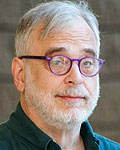 8:45-10:00 a.m. – Prof. Michael Hoeflich, “Landmark Court Cases That Changed the Country.” (This lecture will be delivered in Spooner via Zoom and online.)
8:45-10:00 a.m. – Prof. Michael Hoeflich, “Landmark Court Cases That Changed the Country.” (This lecture will be delivered in Spooner via Zoom and online.)
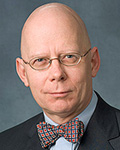 10:20-11:35 a.m. – Prof. Robert C. (Robin) Rowland, “The Shining City on a Hill vs. Audacious Hope: Similarities and Differences between the Rhetoric of Ronald Reagan and Barack Obama.” Ronald Reagan and Barack Obama are widely seen as the two most transformative presidents of the last half century and the two most eloquent. One was a pragmatic small-government conservative, the other a pragmatic more-government liberal. Nevertheless, there are surprising similarities between the two most eloquent presidents since FDR. In this presentation, Rowland will explain their contrasting ideologies, but similar vision of the most important American political myth, the American Dream.
10:20-11:35 a.m. – Prof. Robert C. (Robin) Rowland, “The Shining City on a Hill vs. Audacious Hope: Similarities and Differences between the Rhetoric of Ronald Reagan and Barack Obama.” Ronald Reagan and Barack Obama are widely seen as the two most transformative presidents of the last half century and the two most eloquent. One was a pragmatic small-government conservative, the other a pragmatic more-government liberal. Nevertheless, there are surprising similarities between the two most eloquent presidents since FDR. In this presentation, Rowland will explain their contrasting ideologies, but similar vision of the most important American political myth, the American Dream.
Dr. Rowland is a Mini College favorite who has spoken at nearly all of our past gatherings. He teaches rhetoric and argumentation at KU. He has received four university-wide awards for teaching and a national teaching award from the National Communication Association. Dr. Rowland has won several national awards for his research and published four University Press of Kansas books, one of which won the Kohrs-Campbell Prize in rhetorical criticism. Rowland presented the keynote on rhetoric at the Reagan Centennial. His most recent book, The Rhetoric of Donald Trump, was published in spring 2021. As a KU student in 1976, Dr. Rowland and his debate colleague won the National Debate Tournament.
Noon-1:00 p.m. — Lunch on your own.
 1:05-2:35 p.m. – Dr. Bruce Frey, “The History of American Comic Books.” This brief survey of the development of comic books runs from the dawn of mankind to 1985 or so, says Frey. Dr. Frey teaches statistics and research methods in KU’s School of Education and Human Sciences. In his spare time, he collects comic books and has a podcast, Echo Valley, that celebrates bubblegum music from the late 1960s. For his podcast, Bruce was recently featured on the cover of Kansas Alumni Magazine.
1:05-2:35 p.m. – Dr. Bruce Frey, “The History of American Comic Books.” This brief survey of the development of comic books runs from the dawn of mankind to 1985 or so, says Frey. Dr. Frey teaches statistics and research methods in KU’s School of Education and Human Sciences. In his spare time, he collects comic books and has a podcast, Echo Valley, that celebrates bubblegum music from the late 1960s. For his podcast, Bruce was recently featured on the cover of Kansas Alumni Magazine.
 3:00-4:30 p.m. – Dr. Lisa McLendon, “Grammar Obscura – Some of the Lesser-Known Parts of English Grammar, What They’re Called, How They Work, and When They Get Used.” Let’s explore some of the elements of English you probably know but don’t know what they’re called. The discussion will include misplaced modifiers, possessives vs. attributives, agreement, subjunctives, and some fun things such as ablaut reduplication and anthimeria. When you know what things are called and how they work, you know why sometimes things “don’t sound right.”
3:00-4:30 p.m. – Dr. Lisa McLendon, “Grammar Obscura – Some of the Lesser-Known Parts of English Grammar, What They’re Called, How They Work, and When They Get Used.” Let’s explore some of the elements of English you probably know but don’t know what they’re called. The discussion will include misplaced modifiers, possessives vs. attributives, agreement, subjunctives, and some fun things such as ablaut reduplication and anthimeria. When you know what things are called and how they work, you know why sometimes things “don’t sound right.”
Dr. McLendon is the William Allen White professor of journalism. She joined the KU journalism school as the coordinator of the Bremner Editing Center in 2012, after 12 years as a newspaper copy editor. McLendon, who has a doctorate in Slavic linguistics, is the author of “The Perfect English Grammar Workbook,” published in 2017. In her free time, she enjoys books, quilting and British detective shows. This is Dr. McLendon’s third appearance at Mini College.
4:30 p.m. — Adjourn.
